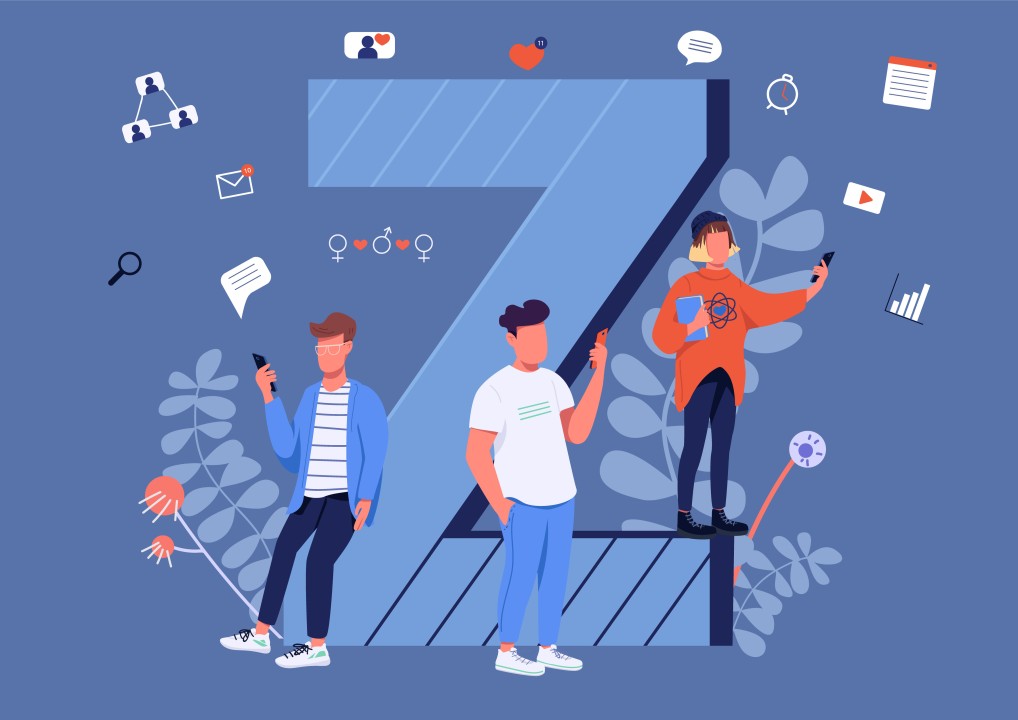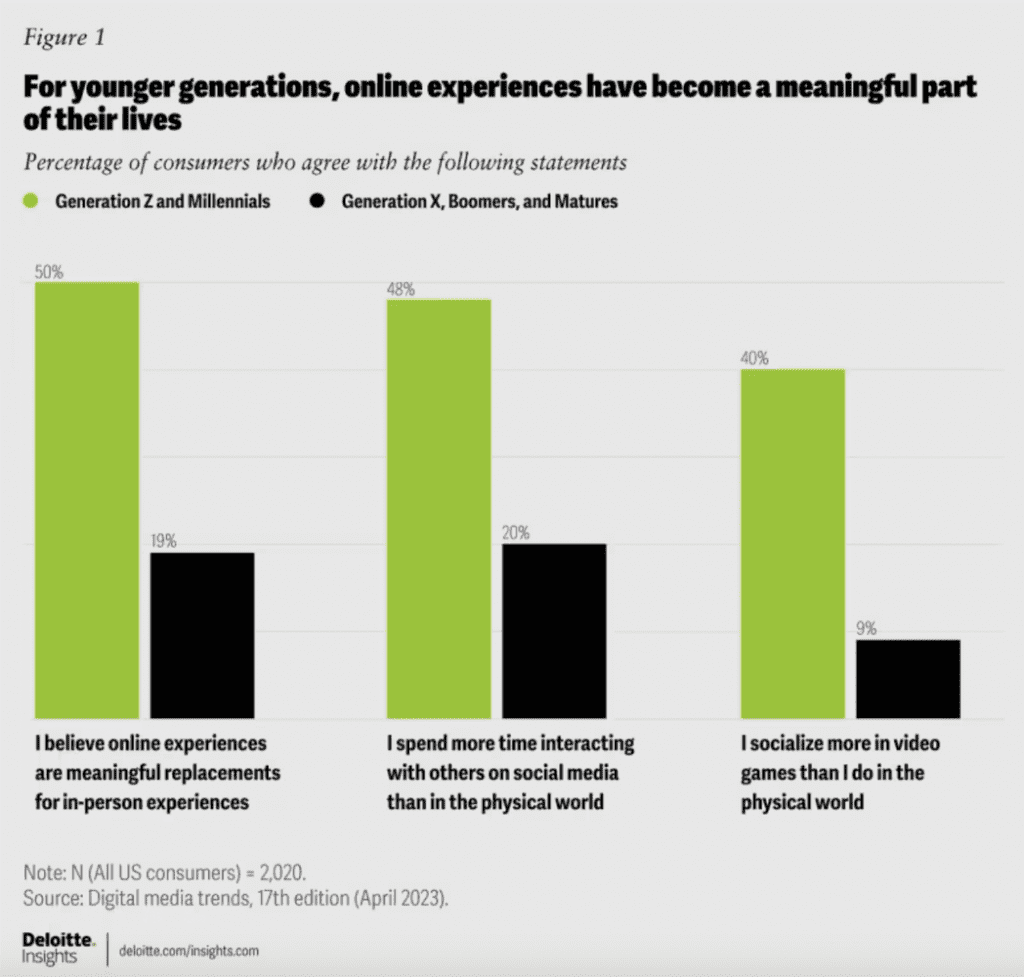Mark Newcomer Chief Strategy Officer & Julie Koepsell Chief Client Officer, CourtAvenue
GenZ In Stark Contrast
Have you ever asked yourself how different a generation is from those both older and younger? As an agency full of market researchers and those responsible for helping companies create tailored experiences for their customers, this question comes up a lot. Today, the emerging characteristics of GenZ (26 and younger) are coming into focus, bringing this question front and center, similar to when Millennials were the conversational topic of their day.

In the sake of transparency, the authors of this article are full fledged members of GenX (41-56 proud years of age). We went through some of these motions too. Boomers (57-75 years in age), called GenX lazy and cynical, but they also called GenXers individualistic, tech savvy, and creative.
GenXers (and those older), in turn thought of Millennials (27-42 years old), as lazy, but added the notion of being entitled. Many grew up with the internet, powerful gaming consoles, and mobile devices that got smarter, faster, and more capable every year. They grew up with the rise of social media as a contemporary force and the idea that patience is overrated. Similar to GenX, they were seen as tech savvy and innovative, but known for having a degree of social conscience and idealism. An interesting mix of negative and positive sentiment.
Despite similar feelings of concern from one generation to the next, a common idea is that each generation is shaped by the technology of the time. The true shaping of GenZ is not as widely understood just yet, however, a recent study from Deloitte, sheds interesting light on the issue:

For starters, GenZ audiences, by a wide margin, say that online experiences are a meaningful replacement for real-world experiences. Furthermore, they spend more time interacting with others on social media and in video games more than face-to-face. Compared to older generations, these differences are 2-4x more prominent in GenZ.
In talking with colleagues, reactions range from being somewhat disheartened to some degree of anger and frustration. Perhaps, the translation is… how did this happen? How is it possible that the generation next in line to command shopping power (as every young generation inevitably does), to become the core workforce of enterprise decision makers, and those to raise the next generation of families, look so different from the generations raising them?
All interesting questions, but the cards are dealt at this point. The why may not be as important as what it means...
Before taking a dive into this, it is worth recognizing that all generations have an immediate and somewhat negative view of youth. In fairness, elders have paid their dues, defined the ways and means of their time, and given birth to those right behind them.
However (and maybe this is written in some similar text from some earlier era), this generational shift feels different. The step change in technology is more condensed and acute, and the behavior change is leading to not just new behaviors, but major changes in how relationships are forged and time spent.
This ultimately brings us to a point and a question to consider. For the question, are these behaviors here to stay and / or stay with such prominence? The answer to that question is certainly not written in stone. In fact, many of the negative perceptions of younger generations shift overtime as they grow up and take on more responsibility. The shared experience of life softens the harsh edges of judgment. The generational gaps close, yet the true defining characteristics continue to shine through.
As to the point, those in leadership positions need to get to know this generation ASAP. Learning what is transient and youthful in nature (yet still important for breaking through) and what this generation will usher in with permanence is the crux of the issue. Older GenZ is on the cusp of getting married, having children, and getting promoted into the next levels of career. Those in leadership positions today, need to prepare. GenZ is not just a marketing concept, but the next major step change in society at large.
This generation will face new pressures and challenges. On the former, anxiety, depression, and FOMO are taxing this generation like no generation before them. It is unclear how lasting these issues may be, but there is consistent evidence that the pressure and emotional impact is real. At the same time, they are enjoying connections older generations have trouble understanding, yet provide a level of relationship that is a strong part of their social fiber and even a facet of building identity. As a concept, this may seem hard to grasp, but nonetheless, is a real characteristic of the generation at the moment.
So…what to do. First, don’t judge. Take some time to listen and observe. All generations face unique pressures, but this generation may face some even more unique ones.
Second, put yourselves in their shoes and try to remember what it is like to be young, fresh of mind, and inexperienced. Imagine if you had today’s technological power while growing up.
Third, get ready to change the way you think. It is the first time in more than 15 years that a new generation is ready to create new demands of today’s enterprise leaders.
At CourtAvenue, we are keeping our eyes and ears open. We are considering what this means for how we tap into consumer insights. We are thinking through what this means for developing experiences that not only appeal to all audiences, but specifically to younger generations. Lastly, we are ready to not only embrace the positive aspects of this generation, but ready to learn about those that challenge them and us at the same time.
